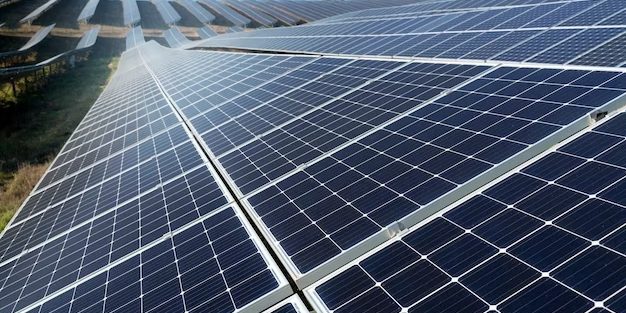Solar energy is indeed poised to play a significant role in the energy landscape over the next few decades. Here are some reasons why it is likely to continue its growth and dominance:
Declining Costs: The cost of solar photovoltaic (PV) panels has plummeted over the years, making solar energy increasingly affordable and competitive with traditional fossil fuel sources. Technological advancements, economies of scale, and increased manufacturing efficiency have all contributed to cost reductions. As it becomes more cost-effective, its widespread adoption is expected to accelerate.
Abundant Resource: The sun provides an abundant and virtually limitless energy resource. The amount of solar energy reaching the Earth’s surface in just one hour is enough to meet global energy demand for an entire year. This immense potential ensures that it can be harnessed across diverse geographical locations, making it a highly versatile and accessible energy source.
Renewable and Clean: Solar energy is a renewable resource, meaning it can be replenished naturally and indefinitely. Unlike fossil fuels, solar power generation does not produce greenhouse gas emissions or air pollutants during operation, contributing to improved air quality and reduced carbon footprint. The environmental benefits of it align with global efforts to mitigate climate change and transition to cleaner energy sources.
Technological Advancements: Solar energy technology continues to evolve, driving increased efficiency and performance. Research and development efforts have led to breakthroughs in solar cell designs, materials, and manufacturing processes. Innovations such as perovskite solar cells, bifacial panels, and solar tracking systems are enhancing the energy capture capabilities of solar installations, further increasing their viability and attractiveness.
Energy Independence and Resilience: Solar energy empowers individuals, communities, and even entire countries to achieve energy independence and resilience. Distributed solar systems, such as rooftop solar panels, allow households and businesses to generate their own electricity and reduce reliance on centralized power grids. This decentralization improves energy security, reduces transmission losses, and enhances resilience in the face of natural disasters or grid disruptions.
Job Creation and Economic Growth: The solar industry has become a significant driver of job creation and economic growth. As solar installations increase, there is a growing demand for skilled workers in manufacturing, installation, operation, and maintenance. This sector provides employment opportunities across the value chain, from research and development to sales and distribution, contributing to local and global economies.
Supportive Policies and Incentives: Governments and international organizations recognize the potential of solar energy and have implemented supportive policies and incentives to promote its adoption. These measures include feed-in tariffs, tax credits, grants, and renewable energy targets. Favorable policies help create a conducive environment for investment in solar projects, stimulating market growth and fostering sustainable energy transitions.
While solar energy has immense potential, it’s worth noting that its widespread adoption may face challenges such as intermittency (addressed through energy storage solutions), land requirements, and grid integration. Nonetheless, with ongoing advancements and increasing awareness of the need for sustainable energy sources, solar energy is expected to play a leading role in the global energy mix in the coming decades.

